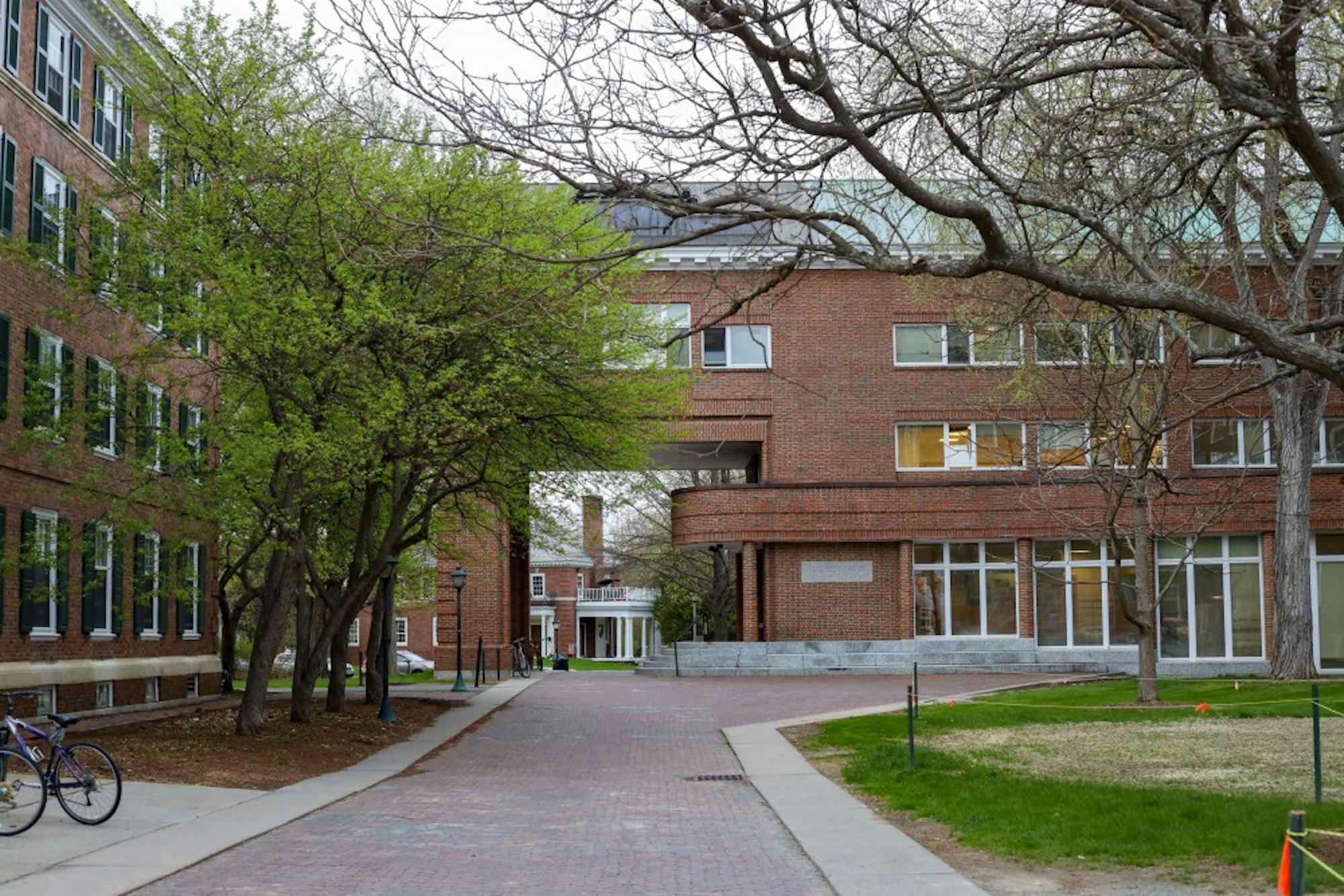On May 9, Hillel at Dartmouth and the Hilary Chana Chabad House co-sponsored “Prospects for Peace: A Discussion about Potential Steps Forward in the Israel-Palestine Conflict,” which featured a conversation with two fellows from The Washington Institute for Near East Policy: Ghaith al-Omari and Dennis Ross.
According to Georgetown University’s website, Ross serves as a counselor and Ziegler Distinguished Fellow at The Washington Institute, as well as a Practice of Diplomacy distinguished professor at Georgetown. For more than twelve years, Ross played a leading role in the Middle East peace process, working as a diplomat under the George H.W. Bush and Bill Clinton administrations. Ross is widely credited with helping facilitate the 1994 Israel-Jordan peace treaty, the website wrote.
Ghaith Al-Omari is a non-resident fellow at the American Task Force on Palestine, according to the American Task Force on Palestine website. He previously served in various positions within the Palestinian Authority, including international relations department director in the Palestinian president’s office and advisor to former Prime Minister Mahmoud Abba. Al-Omari also participated in various negotiating rounds of the Palestinian-Israeli peace process, most notably the 2000 Camp David Summit and the Taba Summit.
In his opening remarks, Ross discussed the battle between authoritarianism and democracy across the world, emphasizing Israel’s commitment to democracy through popular demonstrations. He explained that the demonstrations seek to address issues including selection of legal counsel, the structure of Israel’s government and Supreme Court politicization.
“We’re seeing in some ways what may be a model for other democracies, because we are seeing unprecedented levels of grassroots protests,” he said. “We’ve never seen anything like it before in Israel. [There have been] 18 weeks of demonstrations, grassroots driven. Up to 4% of the population demonstrates every week.”
Ross added that the selection of judges was the “core issue” driving protests.
“There was a sense that the government was going to pick judges they know they effectively own, and given this government, they will basically be able to decide everything,” Ross said. “This has caused people who have never demonstrated before to demonstrate.”
The risk of becoming a binational state, also known as a one-state solution, poses another threat to democracy in Israel, Ross said.
“A binational state means it can be Jewish or democratic, but it cannot be both,” he said.
Al-Omari began his statements by advocating for a two-state solution — a joint Jewish and Palestinian state where each can “express their identity” — calling it the “only way” to end the ongoing conflict between Israel and Palestine.
“What are the prospects for peace today?” Al-Omari asked. “I would say they are non-existent. The best we can hope for is to preserve the possibility for peace and a two-state solution. If you rephrase the question and ask what are the prospects for progress, I think there is a lot that can be done.”
Al-Omari called on the United States to lower their expectations and pursue more modest objectives for peace in Israel-Palestine relations. He also highlighted the importance of “stopping the [democratic] backslide,” including a recent decline in separation of powers and politicization of the courts.
In an interview after the event, Ross said that he and Al-Omari have been traveling to college campuses across the country to demonstrate the nuance of the Israel-Palestine debate.
“We just felt that we want to introduce a little more reality into the discussion on the Middle East, and we wanted to show you can come from really different points of departure but basically have a thoughtful conversation on these kinds of issues,” Ross said. “We don’t have to see these things the same, yet you can actually look at these kinds of challenges — which tend to create great emotions — and take a step back and see there are ways to think about this differently and build bridges.”
Gabe Chang-Deutsch ’25, who attended the event, said he appreciated the event’s nuance.
“I like how there were multiple perspectives both from the audience and the speakers about the Israeli-Palestinian conflict,” he said. “I thought the discussion became a little detail-oriented for me, but that may be just because I am not an expert in the field.”
Shoshie Bernstein ’26 said she believes that it was important that the event included multiple perspectives in the discussion.
“I think for any conflict, especially one that is as complex and devastating as this one, it is very important to hear and understand every side and the voices of everyone involved — especially Al-Omari who was an advisor to the Palestinian negotiating team,” she said.




